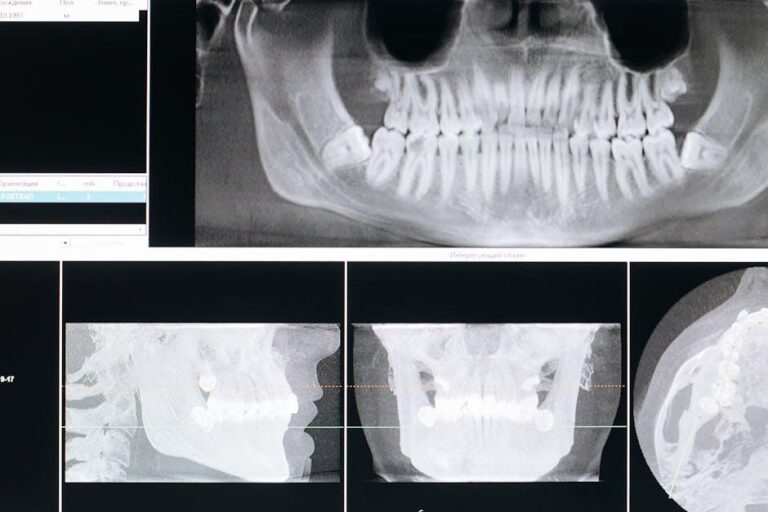
Poor Oral Health Potentially Linked to Chronic Health Problems – U.S. News & World Report
Oral health is often overlooked when considering overall wellness, yet an increasing body of research highlights its critical role in preventing chronic health issues. According to recent findings covered by U.S. News & World Report, poor oral health may be a significant factor in the development or exacerbation of various chronic diseases. This article takes an in-depth look at the fascinating connection between oral hygiene and systemic health, practical tips to improve your oral care routine, and why prioritizing dental health matters more than you think.
The Link Between Poor Oral Health and Chronic Diseases
For decades, scientists and healthcare providers suspected that ongoing oral infections and inflammation could affect other parts of the body. U.S. News & World Report’s coverage emphasizes new evidence linking poor dental health to a variety of chronic illnesses, such as:
- Cardiovascular Disease: Gum disease (periodontitis) has been associated with increased risk of heart attacks and strokes.
- Diabetes: Inflammation from oral infections may contribute to insulin resistance, complicating blood sugar control.
- Respiratory Infections: Harmful bacteria from the mouth can be inhaled into the lungs, potentially worsening conditions like pneumonia or chronic obstructive pulmonary disease (COPD).
- Rheumatoid Arthritis: Chronic gum inflammation may exacerbate joint inflammation in rheumatoid arthritis sufferers.
- Pregnancy Complications: Periodontal disease has been linked to preterm birth and low birth weight.
How Does Oral Health Affect Overall Health?
Maintaining optimal oral hygiene reduces harmful bacterial buildup in the mouth, which prevents systemic inflammation. When oral infections occur, bacteria can enter the bloodstream and trigger inflammatory responses elsewhere in the body. This phenomenon is often referred to as the “oral-systemic connection.” It illustrates why poor dental hygiene doesn’t just cause cavities or gum bleeding but may also contribute to serious long-term diseases.
Understanding Gum Disease: The Root Cause
Gingivitis and periodontitis are the two main forms of gum disease affecting millions worldwide. While gingivitis is an early, reversible stage marked by red, swollen gums, periodontitis represents severe damage with potential tooth loss. The danger lies in chronic inflammation and bacterial invasion that can spill over into systemic circulation.
| Stage of Gum Disease | Symptoms | Health Risks |
|---|---|---|
| Gingivitis | Bleeding gums, mild swelling, bad breath | Usually reversible, risk of progressing if untreated |
| Periodontitis | Deep gum pockets, tooth mobility, gum recession | May increase risk of heart disease, diabetes complications |
Benefits of Maintaining Good Oral Health
Investing in your oral health brings multiple benefits beyond a bright smile:
- Reduced Risk of Chronic Disease: Control inflammation and bacterial spread to lower heart disease and diabetes risks.
- Improved Mental Health: Healthy teeth and gums boost confidence and social well-being.
- Better Nutrition: Strong teeth enable efficient chewing and digestion.
- Lower Healthcare Costs: Prevention reduces expensive treatments for systemic and dental diseases.
Practical Tips to Improve Oral Hygiene
Taking small daily steps can significantly enhance oral health and potentially reduce chronic disease risk:
- Brush Twice Daily: Use fluoride toothpaste and a soft-bristled brush for at least two minutes.
- Floss Regularly: Remove plaque and food particles between teeth to prevent gum inflammation.
- Schedule Dental Checkups: Visit your dentist at least twice a year for cleanings and exams.
- Avoid Tobacco Products: Smoking exacerbates gum disease and impacts systemic health.
- Maintain a Balanced Diet: Limit sugary snacks and eat fruits and veggies rich in vitamins C and D.
- Manage Chronic Conditions: Diabetes and heart disease require diligent oral care to minimize complications.
Case Study: Linking Oral Health and Heart Disease
One notable study published in a prominent medical journal examined over 5,000 patients and found that those with untreated periodontitis had a 20% higher risk of developing cardiovascular disease. This case reinforced the theory that inflammation and bacteria from gum infections can contribute to arterial plaque formation, fostering heart attacks and strokes. Patients in the study who followed strict oral hygiene practices saw measurable improvements in inflammatory markers related to cardiovascular health.
First-Hand Experience: Why Oral Health Changed My Life
Jessica M., a 45-year-old teacher, recounted her journey battling gum disease and its impact on her diabetes management. “Once I started seeing my dentist regularly and improved my oral care, my blood sugar became easier to control. It was surprising how much a healthy mouth affected my overall health,” she shared. Jessica’s story underscores the personal health benefits of prioritizing oral hygiene.
Conclusion: Prioritize Your Oral Health for a Healthier Life
As highlighted by U.S. News & World Report and multiple scientific studies, poor oral health can no longer be seen as an isolated issue. The mouth acts as a window to your body’s health, with gum disease and infections potentially playing a role in chronic systemic diseases. By adopting effective oral care habits, attending regular dental visits, and understanding this critical connection, you can protect your smile and overall well-being simultaneously.
Start today: brush, floss, and consult your dentist to reduce your risk of chronic health problems linked to poor oral health. Your smile—and your body—will thank you.


